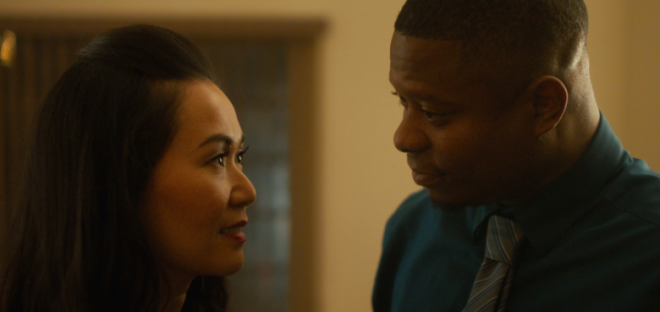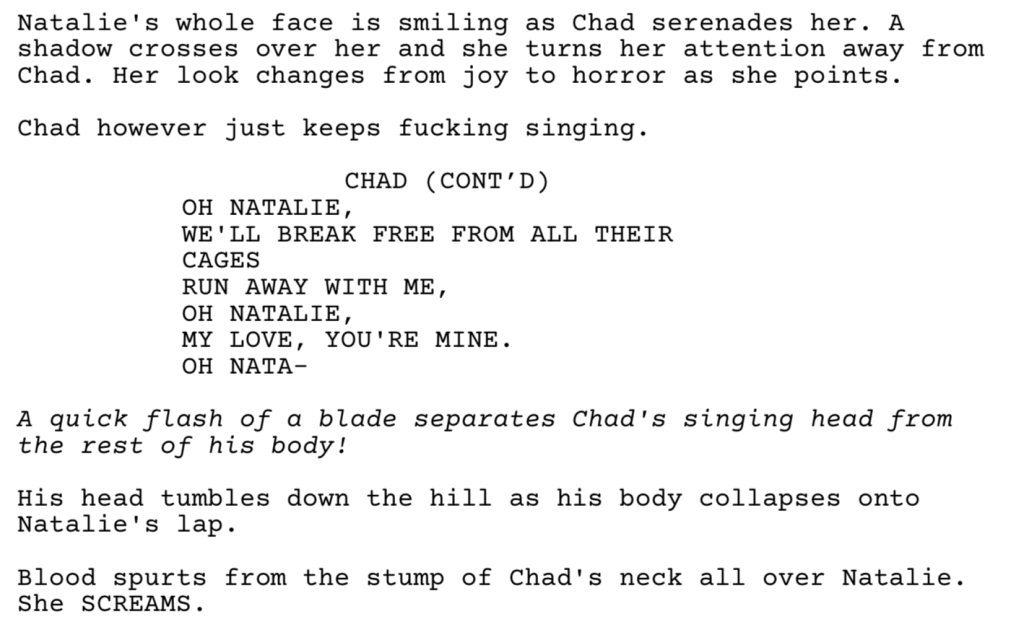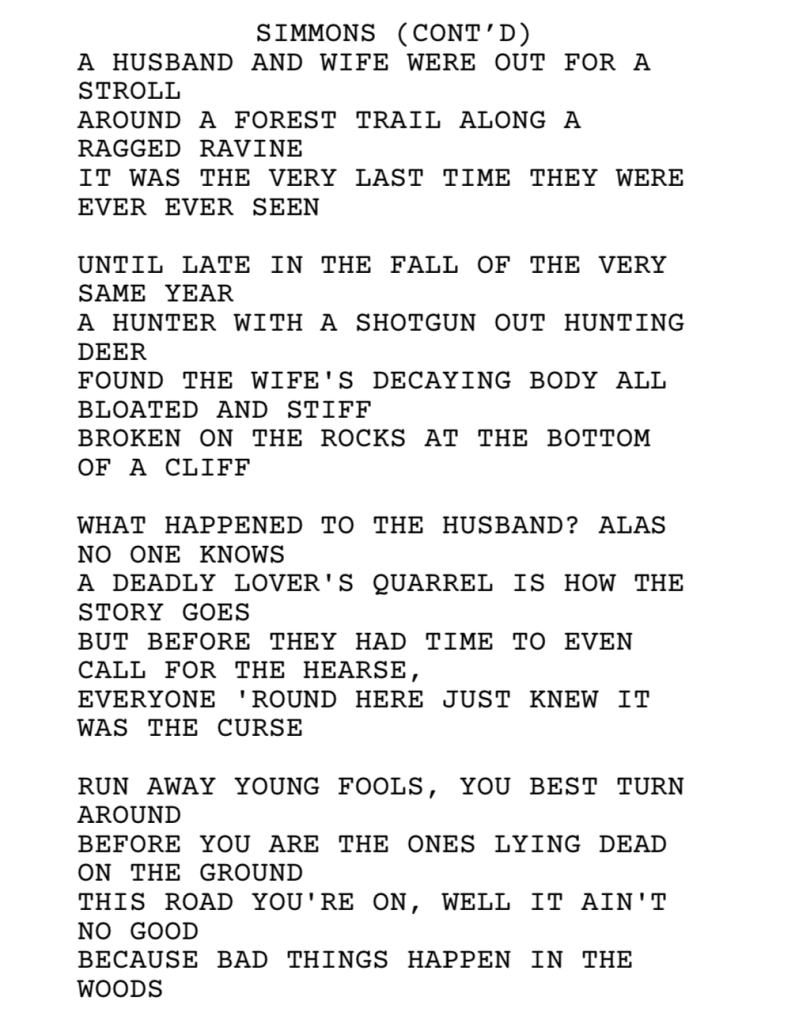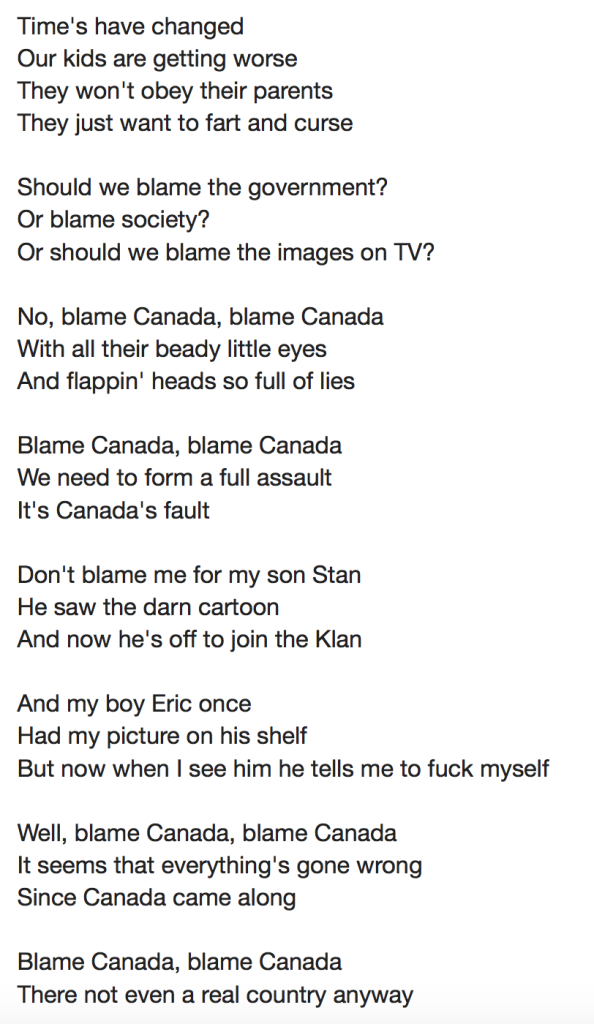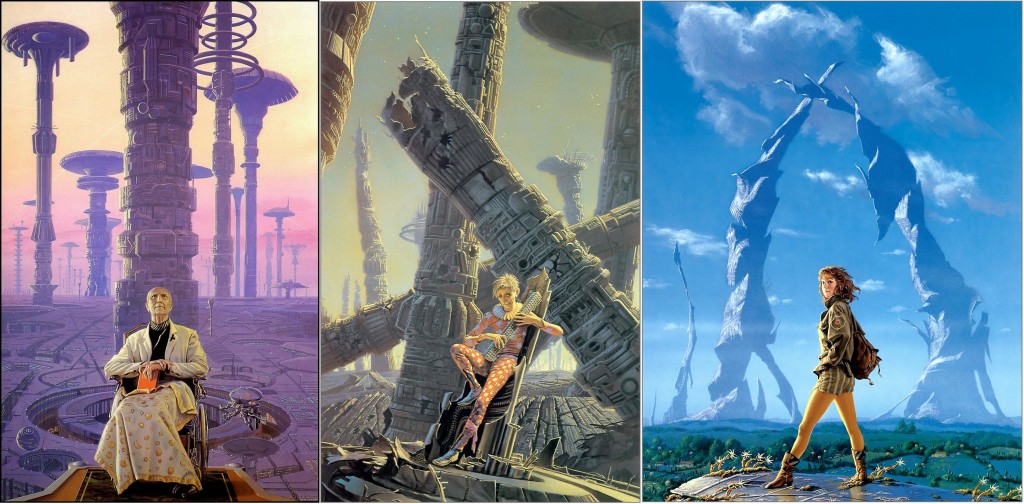Genre: Drama/Supernatural
Premise: (from IMDB) June and Oscar live a comfortable but very predictable wedded life when suddenly they find themselves in a completely unexpected situation, raising questions about love and marriage.
About: Alan Yang, creator of Master of None, got this gig when Fred Armisen and Maya Rudolph, who have been wanting to work together forever but couldn’t find the right project, decided to have a “reverse casting” whereby they brought writers in to pitch them on a show they’d be in. Yang and Matt Hubburd were the winners with this simplistic yet trippy idea about marriage that has quickly become one of the most buzzed-about shows of the year. The only reason it isn’t a bigger deal is because it’s on Amazon Prime and nobody knows how the hell to get on Amazon Prime.
Writer: Matt Hubbard and Alan Yang
Details: 8 half-hour episodes
Before I get into my review of Forever, I want to discuss two movies that bombed this weekend: This Is Us 2 and Assassination Nation. I kid I kid. Life Itself and Assassination Nation. Both films made a COMBINED 3 million dollars despite being shown in a combined 3000 theaters.
So what’s the lesson here? Movies must fit inside a marketing campaign that the average moviegoer understands. For example, when you market a bunch of people getting together to rob a bank, the average moviegoer understands that that’s a heist, and therefore, if they like heist films, they will likely enjoy themselves. But when you look at the trailer for Life Itself, where is the marketing familiarity? It’s just characters talking to each other and crying. You can see that on television but you don’t see it on film anymore. That’s confusing to the average moviegoer. I want to be clear about this – If you write a script that cannot fit inside a pre-established marketing campaign, nobody’s going to want to see it.
That’s not to say you can’t write a movie like this for a streaming service. But it’s not going to work on the big screen.
Assassination Nation is a tougher nut to crack but, in the end, suffers for the same reason. I can see how producers could talk themselves into this movie working. It’s the #MeToo movement. It’s female empowerment. It’s a bunch of women kicking ass. They were probably thinking people would see the movie because the advertising would celebrate these messages. But here’s the problem. Nobody who saw this poster understood what the movie was about. I don’t understand this marketing campaign because I haven’t seen this type of marketing campaign before. So why would I risk $20 on a film that I don’t understand? Why would anybody?
Ironically, if the movie had a single woman holding a gun instead of four women, it would fit into one of the most successful marketing campaigns we have at the moment. That’s what I want you guys to remember. If your script doesn’t fit into a marketing campaign that you’ve seen before, it’s going to have a tough time finding an audience.
Which leads us to Forever, a show that 10 years ago, someone would’ve tried to write as a feature. These days, because it doesn’t fit into any known marketing paradigm, it makes a lot more sense to explore as a streaming show. Now we all know how I feel about experimental storytelling. One of the common criticisms of me is that I don’t understand anything unless it abides by the rules. That’s not true. What I don’t understand is anything that tries to pass sloppy off as visionary. Let’s hope Forever doesn’t fall into that trap.
By the way, this show is one giant spoiler. If you want to enjoy the show in all its glory, I recommend watching it first then coming back to this review.
June and Oscar are a couple of semi-loners who were weird enough that they had trouble finding mates early on in life. Therefore, when they meet each other, it’s not clear whether they’ve really found “the one” or they’re just happy to have found “someone.” Either way, they’re much happier together than they were alone, and that’s all that matters.
There are a couple of sticking points in June and Oscar’s marriage. The first is that Oscar likes routine. He likes eating the same dinner every night. He likes going to the same lake house every year. He’s a creature of habit. June enjoys doing these things because Oscar enjoys them. But after awhile, she gets sick of them. And therein lies their issue. Neither June or Oscar ever tells the other how they feel. This results in resentment, particularly on June’s end.
June tries to remedy this by suggesting something different this year: SKIING. Oscar doesn’t like the idea because it’s new, but eventually gives in. After the two hobble around the slopes for awhile, Oscar loses control and crashes into a tree, dying. That’s the end of the first episode. The second episode is about June grieving the loss of Oscar. And after a long year, she finally gets a big promotion at work, which includes a trip to Hawaii. As they prep for takeoff, June opens a package of nuts and ends up choking on them. She dies. That’s the end of episode 2.
In episode 3, June wakes up in the afterlife, which is basically a more pleasant version of suburbia. Oscar is thrilled that she’s arrived and informs her that now they get to stay here forever. June isn’t so sure she likes that idea. By the end of the week, Oscar is back to his old routine, and June can’t help but think, “Is this it?” For the first time, she starts to challenge Oscar on his boring existence, and their perfectly pleasant relationship is thrown into upheaval. When June finally leaves him, Oscar will have to decide if this new June is really worth fighting for.
Let me start by giving everyone some good news.
I remember reading Alan Yang’s first script. It was a Black List Script called Gay Dude about a guy who learned that his friend was gay. The script was SO AVERAGE. It was the definition of average. Like mind-blowingly average. Average enough where I’m surprised he made the Black List with it. However, fast forward to 2018, and Alan Yang has had two of the buzziest shows on television.
This should serve as a reminder that screenwriting is a process. You can get better. You don’t have to win it out of the gate. Do your best, and even if it’s average, that’s a start. If you can improve at the rate Yang has (or faster since you have Scriptshadow on your side), you could be writing great TV shows in five years.
One of the reasons Yang has broken out like he has is that he understands the new TV landscape better than most. He knows that this is a new medium, and with it comes a new set of rules. You have to try things that you haven’t tried before if you want to stand out.
I’ll give you an example. The hook of this show doesn’t arrive until Episode 3. Oscar dies at the end of episode 1. June dies at the end of episode 2. And the afterlife doesn’t start until episode 3. Now the 55 year old screenwriter who used to write on CSI doesn’t understand this. To him, you would’ve needed to get to the afterlife by page 15 in your pilot. By the end of the first episode at the latest. But it’s a new dawn and a new day. You gotta start thinking outside the box.
Once we get to the afterlife, Yang and Hubbard start using more traditional screenwriting approaches. Whenever you have a unique hook, you have to EXPLOIT THAT HOOK. If you’re not looking for plot threads that could ONLY HAPPEN in YOUR UNIQUE SHOW, you’re not doing your job.
In Forever there’s this teenager character, Mark. He died in high school in a car crash and therefore is forever stuck in a teenager’s body. He’s begrudgingly friends with Oscar and in one of the episodes, they see what looks like two teenagers and their mom up ahead. Mark freaks out. “Uhh, let’s go back home.” “Why?” Oscar asks, before realizing that Mark likes one of the girls. After an argument, Mark agrees to go talk to the girls. “So which one do you like?” Oscar asks. “That one,” he points. “Oh,” Oscar says, seeing the cute girl he’s pointing to. “Redheads, nice.” “No, not her. Her.” And he points to the overweight 60 year old mother.
It turns out that that mother went to high school with Mark, and she was “the coolest girl in school.” She just ended up dying 45 years later than Mark. So Mark goes and talks to her and a major subplot of that episode is the two going on a date. That’s good writing, people. You find plotlines that could only happen in your concept. You do that and you’re guaranteed originality.
The show is also a constant stream of unexpected choices. This is something I barely see as a reader. All writers are making the same choices as everyone else. I’m always 30 pages ahead of the script. And the funny thing is, all it takes to break this pattern is to be conscious of it. When you decide on an idea, ask yourself if you’ve seen it before. If you have, challenge yourself to come up with something else.
Take June’s death. As episode 2 draws to a conclusion, and June is heading to her plane to fly to Hawaii, we get the sense that her death is coming. It’s pretty obvious. Naturally, what are we expecting her death to be? Her plane’s going to crash, right? I was 99% sure that was the choice that was coming. Instead, the stewardess hands June a bag of macadamia nuts, and June excitedly downs one, only to choke on it. Never expected that in a million years.
Forever is a great show until it hits its final two episodes. What Yang and Hubbard are so good at – finding drama and entertainment in the most mundane conversations – is jettisoned in favor of a clunky plot where June treks to another town and Oscar chases her. It’s the only blemish on an otherwise perfect show, and should serve as a lesson to screenwriters everywhere. Don’t go away from the stuff that defines your show. The same thing happened with Seinfeld. They tried to force a plot onto the finale on a show that was anti-plot. But even with that mistake, the characters were so great in this, I still left the show impressed.
[ ] What the hell did I just read?
[ ] wasn’t for me
[ ] worth the read
[x] impressive
[ ] genius
What I learned: With television, you need to identify a core problem at the heart of your main relationship which you will then explore, both directly or through subtext, every time the characters are together. Here, it’s that June and Oscar never talk about their problems with one another. This means that each has a long list of built-up frustrations that are simmering underneath the surface every time they chat.
Genre: Musical Horror Comedy
Premise: In 1985, an eager teen in search of an exciting summer signs up to work at a musical summer camp where counselors are stalked and murdered by an unknown assailant.
Why You Should Read: A Killer Musical is three things: a musical, a slasher movie, and a comedy, in that order. I wanted to have legitimate song and dance numbers to go along with the jump scares and brutal murders of a slasher film, all while keeping the humor from moving into Scary Movie territory where the characters behave as if they are aware that they are in a horror film. — This script is for everyone that has watched Friday the 13th and said to themselves, “Why aren’t there any song and dance numbers in this camp counselor murder romp?” — I’ve only been lurking Scriptshadow’s AOW for a short while and I haven’t seen a musical yet. Perhaps it’s time?
Writer: Chris Hicks
Details: 97 pages
As I lament the fact that I don’t have a Playstation 4 and therefore cannot play Red Dead Redemption 2 – sad face – I’m reminded that all is not lost. Maniac, by new Bond director Cary Fukunaga, debuts today on Netflix, and I’m going to be reviewing it Monday. The series is supposed to be unlike anything you’ve seen before, so it’ll be an interesting watch. Make sure to catch at least the pilot episode so you can participate in the discussion.
Speaking of unique ideas, we’ve got a true original one today with our Amateur Offerings winner. I can count the number of musicals I’ve reviewed on Scriptshadow on one hand (There’s La La Land, there’s Bob the Musical, there’s… any more?) and there’s a good reason for that. Musicals are the hardest genres to critique in the script stage. How can you adequately examine something without hearing the very portion that defines it – the music?? I don’t know. But I’m going to try!
It’s 1985. 17 year old virginesque Alyson has just accepted a counselor position at a brand new musical camp in the woods. She’ll be joining her chain-smoking slutty best friend, Nikki, who will be bringing along her boyfriend, Brett, and his hot best friend, Tommy, who Alyson immediately has eyes for.
The group will meet up with a second older group led by Mitch and Colleen, a couple who’s been in one endless fight since they got together, and the Tweedle-Dee and Tweedle-Dum of the gang, Lonnie and Danny. The goal is to get to the location and prepare it for camp, which will begin next week.
What nobody here knows is that the area of woods they’re going to is CURSED! People have been disappearing there since 1865. At least that’s what the psycho gas station attendant tells them. Needless to say, the second they show up, people start getting killed. A theater-masked assailant (half his mask a smiling face, the other half crying, with a stitching down the middle) who carries a makeshift axe welded to an old guitar frame begins killing the poor counselors one by one!
Oblivious to the mayhem, our Final Girl, Alyson, falls in love with Tommy, only to learn that he’s gay. And to make matters worse, after recovering from the embarrassment, she finds that half the group has disappeared. As she starts looking into the mysterious development, it becomes clear that they’re in serious danger. Can she use the power of song to escape? Or will she end up like everyone else in the crew, a one-hit wonder?
I’ve never truly understood the slasher formula.
The point is to create a group of characters we dislike enough that we want to see them killed, however, keep them just likable enough so that, in the meantime we’re not bored by them. I don’t know how you do that. And I suspect that that’s one of the reasons the genre fell out of favor in the 2000s. Audiences aren’t interested in watching movies where they don’t care if the characters live or die.
To revive the formula, you’re going to have to do something different. And give it to Chris Hicks for infusing the genre with just that – MUSIC!
I love this idea. It’s inherently ironic (singing chirpy songs while characters are brutally murdered) and provides the script with that “same but different” element executives are always pining for.
But ideas don’t matter unless the execution is in place. And I’m not sure the execution is there yet with A Killer Musical, beginning with the awkward setup. I went into this thinking that Alyson was one of the camp members, not a camp counselor. She was still in high school so it seemed like a logical assumption. Therefore it was very confusing when she got to the camp and started preparing it for other camp members. I kept thinking, “I’ve never gone to a camp where I had to first prepare the camp.” I eventually realized she was a counselor but that could’ve been clearer.
Once I got past that, I did like what Chris did. Having to prepare the camp gave the characters something to do. Lots of writers have trouble with this. They don’t give their characters any goals and therefore struggle to come up with things for them to do. As a result we get a lot of the cliche scenes like, “Wanna join me for a smoke on the porch,” or “Let’s play Truth or Dare.” By needing to prepare the place, you place the characters in a number of situations where they are isolated and can therefore encounter our stalker.
But what the success of this script really comes down to is: Are the songs enough to invigorate a tired concept? And in this iteration, I would say no. The reason being that while the songs are informative, they’re not clever enough. I was looking for more jokes in the song-writing, more clever asides. Instead, many of the songs were exposition-driven, and fairly straight-forward exposition at that.
The gold-standard for comedy musicals now is the South Park guys, Matt Stone and Trey Parker. These guys are so funny and their song-writing masters the art of being expositional, pushing the story along, AND throwing jokes in there. I wanted more of that in A Killer Musical. Here’s one of their most famous songs, Blame Canada.
To Chris’s credit, he does let loose, but it happens too late – all the way in the third act. One of my favorite moments in the script was when a couple of dead characters reanimate and start sing-narrating Alyson’s escape sequence. It was fun and clever – exactly what I was looking for. But it was TOO DAMN LATE. I was like, “Where was this at the beginning??” And while I understand the need to build up to that moment, I felt Chris took too long to get there. I mean, this is a SLASHER MUSICAL. We expect crazy. You can start giving it to us earlier.
I will say I liked the killer. I liked that his main weapon was music-inspired. I thought the mask was great. These movies are so dependent on the mask because that’s what’s going to be used to market the film and a good mask can get you 10 million bucks on opening weekend. And I loved that the kills were musical-inspired. My favorite was him sneaking up on a character with cymbals and then slamming them together on her head, exploding it like a watermelon. Only thing that was missing was him saying, “Well that was cymbollic.”
But for a script with a hook this zany, it was surprisingly tame for the majority of its running time. If I were Chris, I would go back through this and let loose, particularly with the song lyrics. I think this script is worth pursuing because I can see it as a movie. But the author needs to un-muzzle himself and deliver on the promise of the premise much earlier than the third act.
Script link: A Killer Musical
[ ] What the hell did I just read?
[x] wasn’t for me
[ ] worth the read
[ ] impressive
[ ] genius
What I learned: Readers loooooooove scripts with this much dialogue. When a reader sees a script like this, it’s heaven. They know that their read time has just been cut down by half an hour, possibly more. I’m not saying that every script should have tons of dialogue. I’m only saying that if all else is equal and you’re trying to decide between a dialogue-driven script and a description-driven script, pick the dialogue one.
1) When a character asks a question, don’t always have the other character answer it. – Many writers treat dialogue like a logical exchange of information. If someone asks something [beep beep boop – I am a robot] the other character must answer. The second character will, in turn, ask a question, and the original character then answers it. That’s not true to life. Conversation is messy. Sometimes people leave questions hanging, assume they’re rhetorical, or even ignore them completely, and that’s okay.
2) If a character must reveal backstory, have them do so reluctantly. – There’s nothing more artificial than a character who willingly opens up about their past.
3) If it feels like the characters are speaking to the audience, rewrite the dialogue until it feels like the characters are speaking to each other. – This happens a lot when exposition is involved. The writer includes information that characters would NEVER say to another person, but they rationalize it by saying it’s not for the other person. It’s for the audience. This is where dialogue starts sounding bad. It’s got to feel like a conversation that would happen in real life for it to work.
4) The power of an unwanted third character. – You’d be surprised at how much more fun dialogue becomes when you inject an unwanted third character. An argument between a couple in their car can feel cliche. Put that same couple in a diner booth with a chirpy waitress who won’t leave them alone and the scene comes alive.
5) Occasionally insert exchanges where characters say the opposite of what they should. – I was watching the Amazon show, Forever (spoiler ahead). Maya Rudolph’s friend is trying to get her to go to church to grieve. Maya doesn’t want to go. “Oh, you think you’re too good for church?” Maya thinks for a second. “Yes.” Or here’s an exchange I read in a recent script between two siblings – Brother: “Dad died.” A long silence. Sister: “About time.”
6) Make it so your characters have to come to a conclusion about something. – Bad dialogue is often conversation without a point. An easy way to hack this is to make it so your characters are trying to come to a conclusion about something. And, of course, they don’t agree on how to get there.
7) If it’s bad dialogue, it’s probably a dull situation. – The best dialogue is derived from interesting situations. If you place your characters on a porch with nothing to do but talk, chances are the dialogue will be random and aimless. But if you place the same characters on a floor in the middle of a bank robbery they’re trying to escape from, their conversation is captivating. These are extreme examples but the point is: the more captivating the situation, the more captivating the dialogue.
8) Give one of the characters a secret that affects the other character. – A scene where two people are talking about work is boring. A scene where two people are talking about work and Character A knows that Character B is going to be fired later today is cringe-inducing (in a good way).
9) The correct answer to a question isn’t always the best dialogue option. – In Hell or High Water, our bank-stealing brothers are squaring away their mortgage payment with the trust executor, a man who knows they stole the money. The troublesome brother is skeptical of the executor, and keeps asking him tough questions. His final question is: “How much are you making off this transaction?” Now think about that for a second. The executor knows the exact amount he’s making. But is that the best answer for this dialogue exchange? Is “1200 dollars” a good line of dialogue? No, it isn’t. You want to know what he says instead? “Not nearly as much as I’m risking.” Now that’s a good line of dialogue.
10) Play the opposite emotion of the setting. – Two characters joking around and laughing at a funeral is more interesting than the typical depressing conversation you get. Likewise, two characters having a really depressing conversation at a wedding or a baby shower can turn a cliche scene into an unexpected treat.
This week has been extremely busy for me, so much so that I didn’t have time to read a script last night. Instead, I offer you a giant helping of Scriptshadow Quick Hits, a dose of the projects that have been making noise around town the last couple of months. Would love to hear your thoughts on them in the comments section. Here we go!
Neil Blomkamp/Robocop – Last month, it was revealed that Neil Blomkamp would be directing a Robocop movie. I find this interesting because it continues a trend of rebooting life-support franchises, such as Shane Black’s Predator and Tim Miller’s Terminator, as opposed to greenlighting fresh original ideas. The reason this particular choice is so troubling is that Blomkamp was one of the last directors creating big-budget original content in Hollywood. And now we’ve lost him to the dark side. However, an argument can be made that Blomkamp dug his own grave. Neither of his last two films, Elysium and Chappie, wowed at the box office. If you’re a studio looking at those numbers, you say, “Here’s one of the biggest talents we’ve had in years, and even he can’t hook audiences with original material.” Hence, studios have one more round of ammunition in their gun they can shoot at anyone claiming the industry needs to take more chances. This is what’s so frustrating about the desire for originality. We say we want it. But when it’s presented to us, we don’t show up. Then again, we’re not going to show up for a piece of trash. It’s a two-way street. I think if you’re going to write something original, it needs to be amazing. It can’t be “as good” as The Force Awakens. It can’t be “as good” as Ocean’s 8. It’s gotta be better. A LOT better. Not only because box office for original material is anemic. But because the only way we’re going to get more trips to the buffet is if we cook better food.
Bad Education – I remember reading this script only because it was on the Black List. It sounded jaw-droppingly boring. Yet it turned out to be one of my favorite scripts of 2017. The script is about a principal who funnels public school money into his own personal bank account. There is virtually nothing buzzy about this idea. There’s no strong hook. It’s not a social issue people care about. It’s not an indie film promoting one of Hollywood’s many agendas. It’s just a story. A good story. A great story! Anyway, after I finished it, I thought, “Great script. Will never get made.” How wrong I was. They somehow got buzzy director Cory Finley (Thoroughbreds) attached, and A-list star Hugh Jackman to play the lead. This is such a coup for good writing. And it’s a reminder that if you write something great, regardless of subject matter, it’s going to garner interest. Mike Makowsky’s career is really picking up, by the way. He’s also the writer of the much buzzed about “I Think We’re Alone Now,” starring Peter Dinklage and Elle Fanning.
KING – Holy Time Machine, Batman! How cool is this news. You have the director of Back to the Future. You have the writer of Braveheart. And then you have… THE ROCK! All coming together to tell the story about King Kamehameha, the founder and first ruler of the Kingdom Hawaii. This! Wow! What a package! I have to admit that I didn’t know Randall Wallace was still writing scripts. And that there’s a 50% chance this movie will never get made because actors aren’t allowed to play any ethnicity other than their own these days (The Rock isn’t Hawaiian) and there’s already backlash. But if this movie gets made – and I hope it does – it’s going to be a trip back into the 1998 filmmaking handbook and whether the movie ends up being good or bad, it will definitely be interesting. Can’t wait for this one!
The Lottery – If you’ve been reading the site regularly, you know I’ve been on this kick of FINDING OLD IP. Hollywood loves old IP. And this deal is one that likely has everyone in town stoning themselves for not snagging the rights themselves. The Lottery, the most famous short story of all time, is being adapted into a feature film for the first time. The well-known tale follows a small town that participates in an annual “lottery” which we assume, at first, results in a prize, only to learn by the end that the winner (spoiler!) gets gleefully stoned to death by the town members. There is a screenwriting lesson to be learned here. A pitch becomes turbo-charged if it has a successful doppelgänger in an adjacent medium. It’s said that this project was greenlit specifically due to the success of The Handmaid’s Tale. Had you pitched this as a television show, people would’ve said, “We already have The Handmaid’s Tale.” But you pitch it as a feature and all of a sudden it sounds fresh.
After – I love this story. And hate it. And absolutely love it. No, I don’t understand it, But I love it. So here’s the deal. I’m someone who follows writing in all formats. I don’t care how one succeeds. If you can capture a large audience with your words alone, you’re a superstar. “After” is the first project making me reconsider that belief. “After” is a book (or a series of books) written by a young author, Anna Todd, about a “good girl” who goes off to college and meets a “bad boy,” throwing everything she knows about life into disarray. Major plotlines involve the “bad boy” kissing our protagonist, so that she thinks he likes her, only for him to act “blase” the next time they meet. Yes, let me repeat that. That is one of the major plotlines in the book. Todd started writing the story on the digital self-publication app, Wattpad, aiming for a chapter a day. This is where shit gets crazy. Her chapters have been read over 1.5 billion times on the site. Naturally, Hollywood came calling, and now “After” is being turned into a feature film. There are a couple of things to take away from this. One, write what you know. Clearly, Todd was exploring her life (going to college at the time) through her writing. Two, there seems to be this obsessive desire for material from a large portion of the female demographic centering on virginal “good” women who get mixed up with reckless “bad” boys. From Twilight to 50 Shades of Gray. If you’re looking purely for eyeballs and dollar bills, and you can write this stuff, you definitely want to write it. It’s tres lucrative. Oh, and one more lesson. JUST WRITE! I love that Todd used Wattpad to keep herself accountable. She made sure she wrote every day. That’s awesome.
Superfecundation – There is a group of people – it’s a small group, but it’s a group – who believe that the romantic comedy is primed for a comeback. They’re basing this off of a few barely overperforming Netflix rom-coms and Crazy Rich Asians having the biggest rom-com opening in years. So maybe Screen Gems picking up the spec script, “Superfecundation,” isn’t as crazy as it sounds. Superfecundation is written by Nicholl semi-finalist Savion Einstein, and follows a woman who learns that she’s pregnant with twins from two different fathers, a rare but real-life occurrence. Let’s hope the film gets a better reception than this comment, which appeared underneath Deadline’s article on the sale: “It’s cloying premises like this that have killed the rom com.” Ouch. What’s cool about this sale is that this is the script Einstein semi-finaled in the Nicholl with. So all you Nicholl semifinalists, don’t give up hope on that script sale!
Superhero Heist Movie – Okay, so you know how I keep telling you guys to FIND A NEW WAY INTO THE SUPERHERO GENRE instead of complaining how unfair it is to compete against billion dollar half-century old IP? That’s what filmmakers Chris Baugh and Brendan Mullin did, pitching their own superhero idea to Legendary. Their movie revolves around a group of criminals who stage a heist on a superhero’s lair, then must escape with their lives when everything goes wrong. I don’t know if they’re aware that they’re stealing from a superhero or not. Either direction could be fun. But note how these guys have found a unique way to give us a superhero movie. Not only that, but they’ve figured out a way to make it contained (keeping the price down). That’s how you do it, guys. You find ways around the roadblocks that Hollywood puts up. I have no idea who Chris Baugh and Brendan Mullin are (they made a movie called “Bad Day for the Cut”), but I’ll be keeping an eye out for this one.
Foundation – Apple is making a TV series based on famous sci-fi author Isaac Asimov’s most successful series of books: Foundation. The series comes from Josh Friedman (War of the Worlds) and David Goyer (Batman Begins). The most shocking thing about this pickup is that the books were written in the 1950s. And if there’s one thing I’ve learned in this business, it’s that old sci-fi doesn’t travel well. And with this book (the first in the series), I can tell you that it ain’t good. Borderline unreadable. To me, this signifies just how hard it is for Hollywood to find product right now. There are too many outlets, too many writers competing for good ideas, and that forces giant corporations like Apple to take risks on properties that weren’t meant to be produced in 2018. But this is good news for screenwriters. It’s a seller’s market right now in TV, more so than at any point in history. If you’ve got something good and you get it in front of a lot of eyeballs, I guarantee you someone’s going to say yes.
Genre: Drama/True Story
Premise: In 1925 Detroit, a prosperous physician and descendant of slaves makes a stand when he challenges racial segregation by moving with his younger brother, wife, and infant daughter into a white suburb.
About: This script finished with 38 votes on last year’s Hit List, as well as 10 votes on last year’s Black List. It comes from a new team-up. Max Borenstein, who wrote Godzilla and Kong: Skull Island. And Rodney Barnes, who wrote on Everybody Hates Chris and Hulu’s Runaways. He also wrote the upcoming Black Messiah: The Fred Hampton Story. David Oyelowo will star as Ossian Sweet. Jose Padilha (2014’s Robocop) will direct.
Writers: Max Borenstein & Rodney Barnes
Details: 124 pages
Let’s keep it 100 here. This is the definition of Black List catnip. When you combine racial injustice and a true story, you might as well get a reservation slip in the mail since you’re guaranteed to be invited to the Black List party. It’s for this reason that I approached Arc of Justice skeptically. I’m not convinced it earned its spot so much as calculated it. And I’m not saying there’s anything wrong with calculation. If you see an opening, exploit it! It’s hard enough to make it in this business. Why not take advantage of loopholes? It’s just that this one seems particularly crafted to win the hearts of voters as opposed to audiences. I hope I’m wrong.
The year is 1925. 38 year-old Doctor Ossian Sweet, a black man, has become one of the best doctors in the Detroit, Michigan area. Sweet, along with his wife, Gladys, have had enough success that they’re able to move into one of the nicer suburbs in the area. There’s only one problem. The Sweets will be the only black people in that neighborhood.
Ossian’s troubled younger brother, Henry, isn’t sure this is the right move. Ossian has a near cult-like following in the black community. He’s a hero. To throw that away just to live amongst and earn the respect of white folks seems like a mistake. Still, he supports his brother, even helping him move in.
But as they carry furniture into the house, a crowd of white people form outside. At first, they’re curious. But then they become rowdy. Then rocks start flying through the window. Looking down at the mob from the upstairs, it seems to Ossian and Henry like the mob might rush the house. So Henry pulls out a gun. Ossian grabs it and the two scuffle. The next thing we hear are two shots, and two members of the mob fall. One is dead, the other injured. Ossian is arrested for murder.
In comes Walter White, a black journalist who’s constantly mistaken for being white due to his pale skin color. White sees Ossian as a symbol of the black man’s plight. He believes that if he can help Ossian win this case, it will give black men everywhere hope. But to do that, he’s going to need to get him a great lawyer, specifically a white lawyer, something Ossian’s not keen on.
The case will hinge on who, exactly, shot the white men, information not even we’re privy to. Ossian’s lawyer, Darrow, wants him to plead self-defense. It makes sense. People were storming his home. A man has a right to protect himself and his property. But Ossian refuses. He claims he’s innocent. This means they’ll have to bank on an all-white jury coming to the conclusion that Ossian is innocent, a near impossible feat in the year 1925.
I’ll start by saying this: Arc of Justice isn’t what I expected it to be.
I think I was expecting something heavier, slower, and more self-important. One of those, “Look at how serious I am!” Oscar contender types. But the script has a light touch at times. Dare I say even funny. It reads faster than you’d expect. And some of the characters were fun. Walter White, in particular, is a career changing role. In a way, he’s like a superhero – he’s able to slip into suspect places (such as a Ku Klux Klan rally) without anyone knowing he’s black. Giving him unfettered access to the darkest corners of white America.
But there’s something… I don’t know… wonky about the way the story is constructed, specifically how they didn’t show us who killed the man. Now if this choice had made the story better, I’d be all for it. But in almost every way, it makes the story worse. If we see that Henry shoots and kills the man, then we know that an innocent Ossian is putting his life on the line to protect his brother. That’s interesting. Instead, they wanted to play up the mystery of the shooter til the end, which is okay, I guess. But I never considered this an Agatha Christie novel. The hook isn’t “whodunnit?” The hook is will a white jury let a black man go free for the murder of a white man?
The whodunnit miscalculation works its way into every aspect of the story. One of the more compelling aspects of the script is Ossian’s defiant belief that justice will win out. He boneheadedly believes that the jury won’t see color, that they’ll do the right thing. This is his character’s flaw – his inability to accept that the world sees black people and white people as different. But this only works if we know Ossian is innocent. Yet we don’t know he’s innocent since the writers are still playing up the possibility that Ossian might’ve pulled the trigger. You can’t have it both ways!
Structurally, the script shuns the three act structure, opting for chapters instead. (i.e. Chapter 1: The Doctor, Chapter 4: The Great Defender, Chapter 6: The Shooter). There are seven chapters in all. I have no problem with this in theory and actually think it’s clever. A script is a giant chasm of space. It’s a cave that can seem endless at times. Anything you can do to break that up into chunks makes it more manageable.
You remember the kids who were stuck in a cave last month? If you only focused on getting to the kids, it seems daunting. But if you say: First, let’s get to this section, right here. We figure out a safe way to get there, then we’ll worry about getting to the next safe spot. And then so on and so forth. If you do that, getting to the finish line feels manageable. And that’s what you get here with the chapter approach.
The problem with a chapter approach (or something similar) is you’re going away from what’s proven to work – the 3-Act structure. Beginning (setup), Middle (conflict), End (resolution). That’s the most satisfying way to tell a story. So if you go away from what’s tried and true, you’ll be improvising. Which means the journey will be bumpier. And that’s exactly what Arc of Justice was. Bumpy. It’s a sometimes smooth but occasionally clunky story. And when you’re dealing with weighty material like this, audiences are less open to clunk. There’s a baseline level of sophistication required and Arc of Justice felt more like a script that was finding its way as it went along. We’ll see what happens though. If Padilha directs the hell out of the script, who knows?
[ ] What the hell did I just read?
[x] wasn’t for me
[ ] worth the read
[ ] impressive
[ ] genius
What I learned: When you’re writing serious subject matter, don’t be afraid to add at least one flashy and/or fun character. A lot of writers erroneously believe that if their “serious” movie is going to be taken “seriously” that every frame needs to be “serious.” No, you need levity. You need the audience to be able to take a breath every once in awhile. Smile. Even laugh. The character of Walter White provided that here. He was fun.


